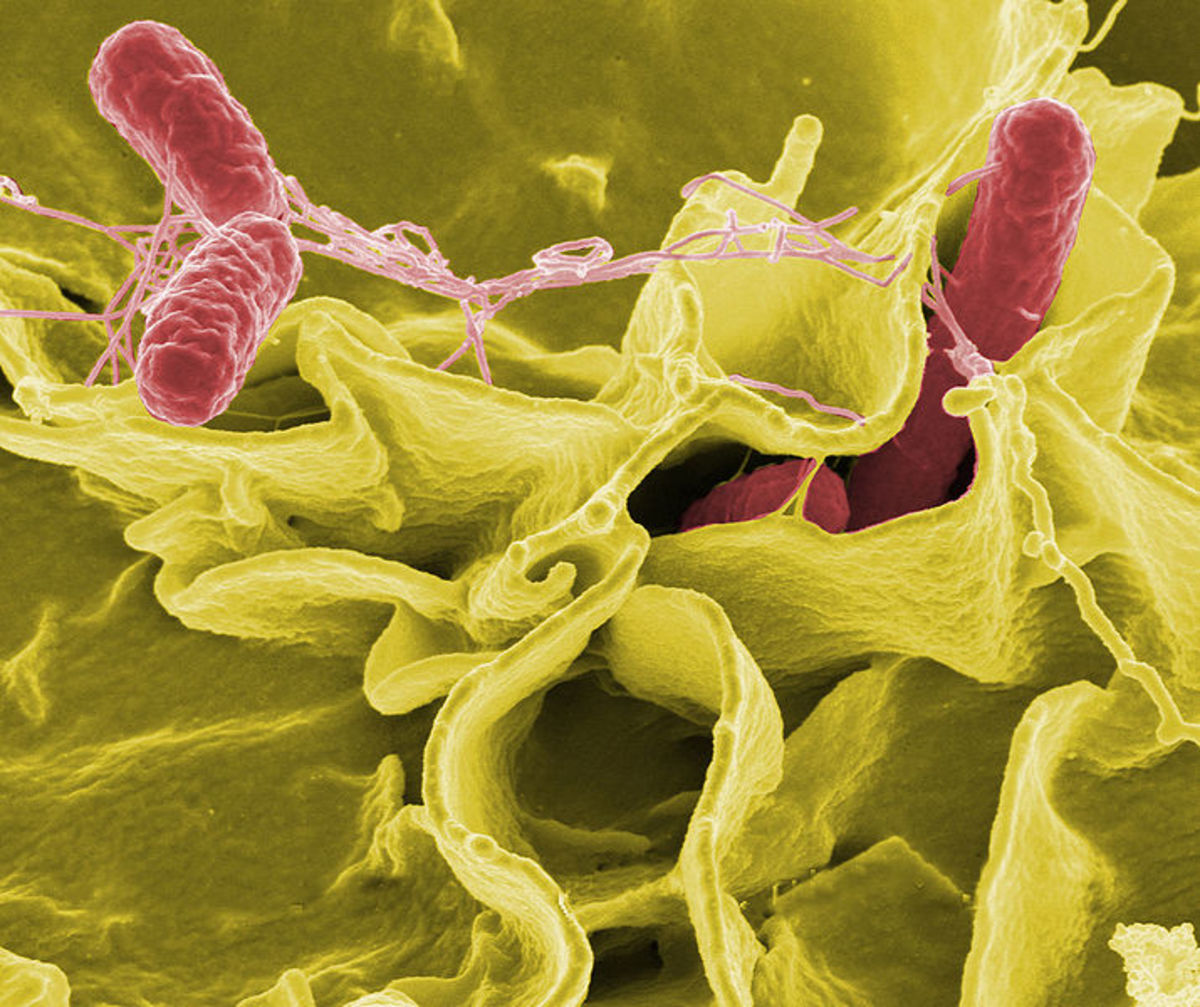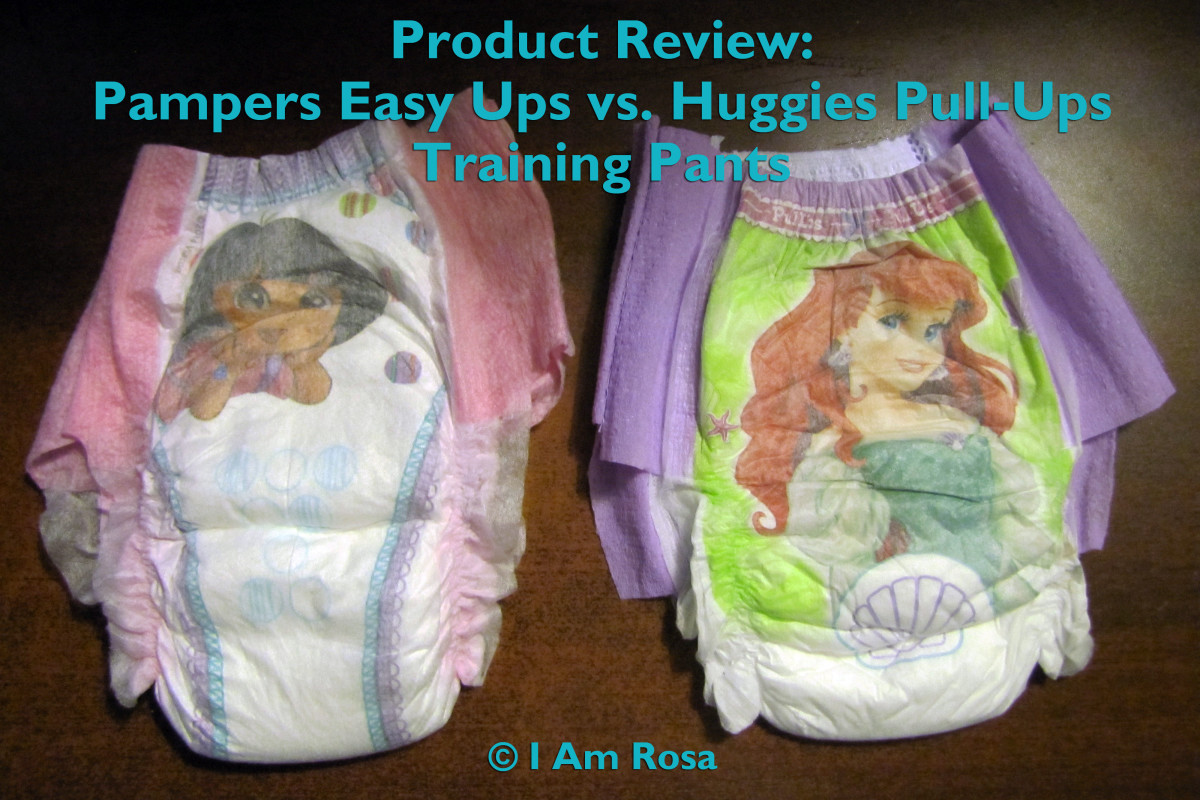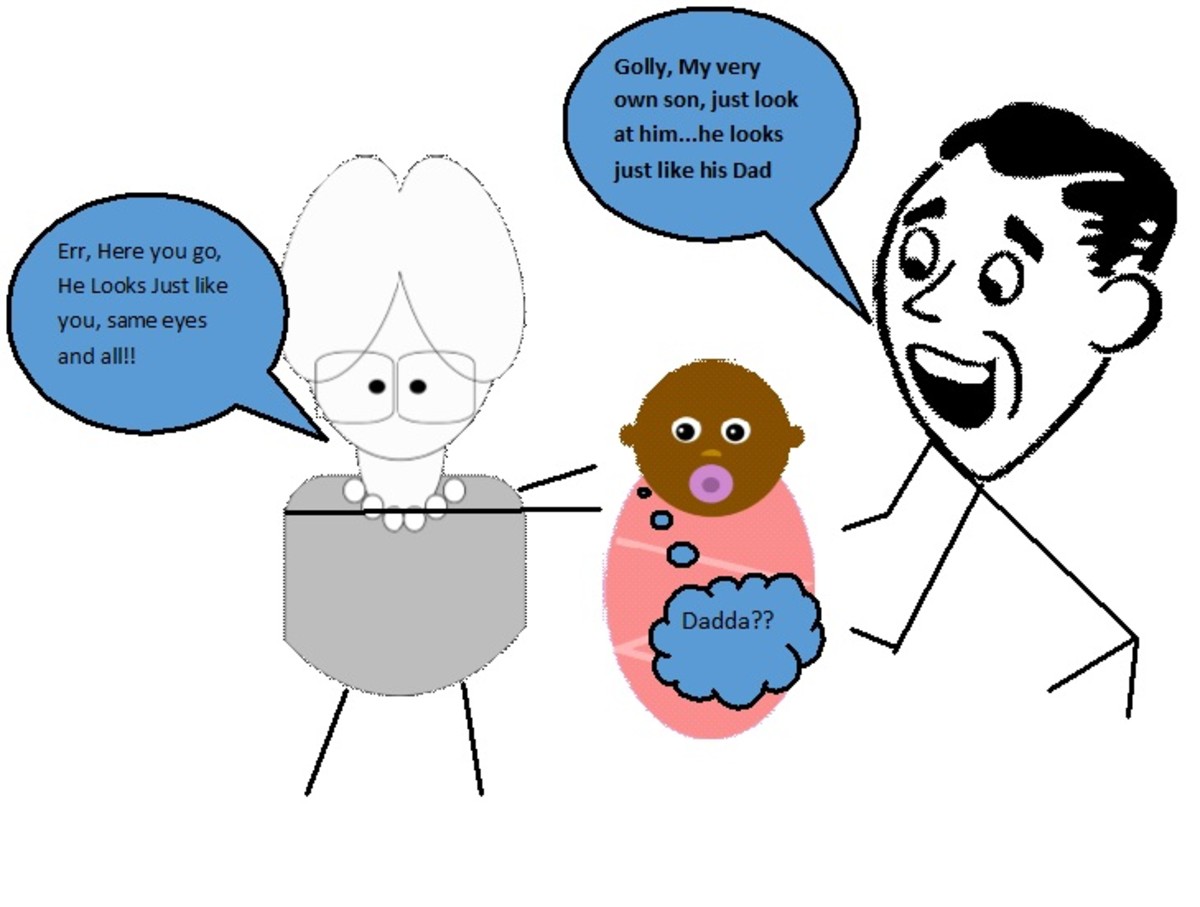Infant Botulism | Honey And Other Foods To Avoid Feeding To Your Infant Baby
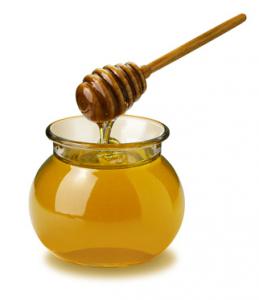
Honey Can Cause Food Poisoning In Infants
Honey sometimes contains dormant endospores of the bacterium Clostridium botulinum. This bacteria produces several toxins which can be dangerous to an infant's immature intestinal tract.
Pediatricians often recommends that infants under the age of one should not be fed or given honey in any form. The reason is that the toxin-producing bacteria in honey can result in a rare but dangerous form of food poisoning called, Infant Botulism, which can lead to illness and even death in infants babies. Giving corn syrup to a child under the age of one can also have the same effect as the honey.
Symptoms of Infant Botulism
When a child under one consumes honey, the following symptoms may occur:
- baby may become weak
- baby may be constipated
- baby may have difficulty feeding or sucking
- baby may have discomfort that may lead to crying
In severe cases, the baby may not be able to move, or may stop breathing and die. If you notice any of these symptoms in an infant baby that's been fed honey, please contact your doctor immediately or get the baby to the nearest medical facility.

Are You Aware of The Danger of Feeding Honey To Babies Under One?
Don't Use Honey Treat Cold In Infant
It is also true that honey has been used in the home remedy treatment of cold in both infants and adults. This ancient time practice has been passed down through generations. It is the reason why some mothers of newborn infants sometimes use honey in the preparation of their baby's meal or as an alternative to cold medicines.
Some mothers of infants still use honey for treating the symptoms of cold in their infant babies. What these mothers are unaware of is the toxins and dangers in the practice of feeding honey to their infants. To prevent food poisoning that can occur through the feeding of honey, avoid doing the following: Do Not
- add honey to your baby's food, water or formula.
- dip your baby's pacifier in honey.
- give your baby honey as if it were medicine.
_______________infantbotulism.org_______________

Why Mothers & Care-Givers Prefer Honey
Most people prefer honey to sugar, because it is believed that honey is less processed, and has a distinctive flavor that's preferred to that of sugar. Also because honey is seen as a more natural sweetener than sugar.
The good news is that after one year of age, your child is no longer at risk from this bacteria in honey that can make your kids sick. The reason for this is that the bacteria cannot grow and make poison after the first year of life. So, older infants, children and adults can no longer get sick from this bacteria after consuming it in honey. You can therefore use honey in their food preparation as an alternative to sugar and other sweeteners.

Pure Honey - Not For Your Infant Child!
Honey As A Sweetener
Honey plays the same significance when added to or combined with the food we eat. Since ancient times, honey has been used in cooking, baking, as a sweetener in tea and some commercial beverages. It is the one natural sweetener that is most commonly consumed all over the world, especially in remote areas of the world where processed sugar is scarce or not readily available.
Medicinal Uses of Honey
Honey, in addition to being a sweetener, is also used as a medicine for treating various ailments.
- Honey has been used in the treatment of diabetic ulcers. Topical honey has been used successfully in cases where the patient cannot use topical antibiotics.
- Honey has also been used for centuries as a treatment for sore throats and coughs. It is believed to be an effective soothing agent for coughs.
- Honey is also believed to help speed up the healing of mild burns in humans.
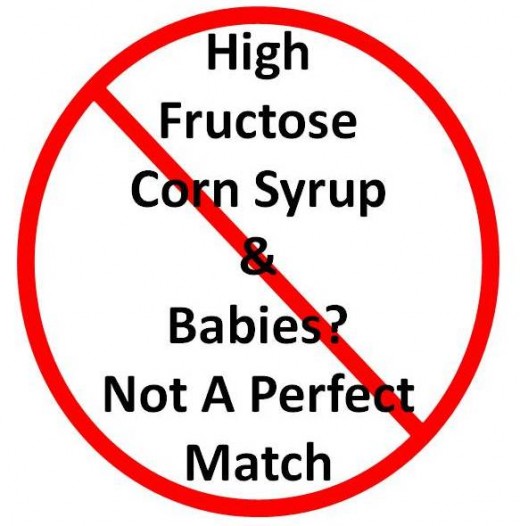
Food That May Have Some Traces of Honey and Corn Syrup
The following food/snacks may have some traces of honey or corn syrup and may therefore pose some danger to your infant child. Avoid giving these to your child until after one year of age:
Honey Flavored Cereal - Mothers love to have their babies snacks on these. If you have to, give your baby the regular, no flavor cheerios.
Canned Fruits - Can fruits, such as, store brand peaches, pears and mangoes are sometimes loaded with corn syrup. Not only are they not healthy for your baby, they can only lay the ground-work for bad dental hygiene. Take care in buying these products. Be sure to read the labels to be sure that your child will be safe eating these canned products.
Chewy Candies - Candies like gummy bears, roll-ups etc.
If you're not the sole caregiver for your infant child, be sure to inform and instruct the other care givers (baby sitters, day care centers personnel) in your child's life what not to feed your child. Always pack enough food and snack in your child's bag to prevent any other food from being offered or introduced to your child.

Is It Possible That A Baby Can Still Get Infant Botulism Even If He Or She Has Not Been Fed Honey?
Yes, it is possible! Other foods, such as, raw fruits and vegetables can also contain the spores that can cause infant botulism.
If you as a parent, plan to introduce your infant baby to semi-solid to solid food before one year of age, proper care should be taken in the preparation of your baby's food. Fruits should be properly washed, and vegetables should be well cooked. Talking about fruits, let's take a look at some fruits and other foods you may need to avoid feeding to your infant:
Other Foods To Avoid Feeding To Your Infant Baby
Food
| Reasons
|
|---|---|
Citrus Fruits, such as, orange, grapefruit, tomatoes, lemon, and lime
| These are very acidic fruits, and may cause an allergic reaction in an infant. However, children 1 year and older can be introduced to these gradually.
|
Cow Milk, Regular Whole Milk, Goat Milk, or Goat's milk formula etc.
| These are not suitable for infants under one year old. Though Goat milk has been known to a better option to regular milk for children with milk allergy and/or reflux, it should only be introduced to infants after 1 year old.
|
Egg Whites
| Egg whites are highly allergenic and may cause mild to severe symptoms in infants under 1 year old. Pediatricians usually recommend that parents should only feed eggs or egg whites to their infants after they turn 1.
|
Peanuts and Peanut-butter
| Early introduction of peanuts and peanut products to infants has been found to reduce the likelihood of a child developing peanut allergy. But, if there is a family history of peanut allergies, you need to consult your child's pediatrician before attempting to introduce peanut in your child's diet.
|
Shell-fish/Fish
| Most infants do very well with a fish diet. I started with my kids even as early as 5 month's. But, some infants do develop allergic reaction to eating fish/shell-fish. So, do proceed with caution and watch for any possible negative reaction in your infant.
|
Breaking News On More Infant Related Issues!!!
- How To Prevent Bacteria Infection In Baby's Formula
When it comes to your infant baby, proper care of feeding bottle and careful preparation and storage of the formula is key to helping curb the menace of infant formula contaminants. - So, Your Baby Is Now Walking. Best Shoes For Your T...
The park grass can sometimes have sharp bristles, and the park benches may have splinters. So, if you do have to have your infant or toddler baby in shoes, there are foot wears that are designed with the health of your baby’s foot in mind. - Podee Baby Bottle Feeding System - Hands-Free Feeder...
The Podee® Baby Bottle is the original hands-free feeding system that lets you feed your baby or babies in a convenient upright position while you attend to other chores around the home. - Infant Furniture | Needed Essentials for Twins and O...
Shopping for twin/multiple babies can be a little overwhelming. It means you usually have to get two or more of these baby essentials.
♦♦♦♦♦♦♦♦♦♦♦♦♦♦♦♦♦♦♦♦♦♦♦♦♦♦♦♦♦♦♦♦♦♦♦♦♦♦♦♦♦♦♦♦♦♦♦♦♦♦♦♦♦♦♦♦♦♦♦♦♦♦♦♦♦♦♦♦♦♦♦♦♦
Do you love to write? Do you have a passion for sharing with others what you know? You can do that by signing up right here on hubpages. And guess what? You'll make some money doing it too. Writing, that is.
♦♦♦♦♦♦♦♦♦♦♦♦♦♦♦♦♦♦♦♦♦♦♦♦♦♦♦♦♦♦♦♦♦♦♦♦♦♦♦♦♦♦♦♦♦♦♦♦♦♦♦♦♦♦♦♦♦♦♦♦♦♦♦♦♦♦♦♦♦♦♦♦♦
Author: Comfort Babatola - ©2013



